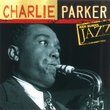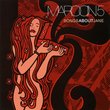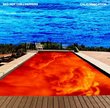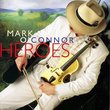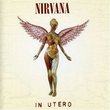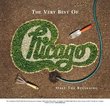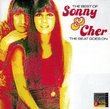| All Artists: Duke Ellington Title: Ken Burns JAZZ Collection: Duke Ellington Members Wishing: 1 Total Copies: 0 Label: Sony Original Release Date: 11/7/2000 Release Date: 11/7/2000 Genres: Jazz, Pop Styles: Swing Jazz, Orchestral Jazz Number of Discs: 1 SwapaCD Credits: 1 UPCs: 074646144428, 5099750103425 |
Search - Duke Ellington :: Ken Burns JAZZ Collection: Duke Ellington
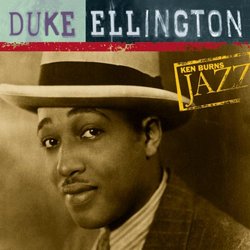 | Duke Ellington Ken Burns JAZZ Collection: Duke Ellington Genres: Jazz, Pop
One of the toughest jobs in assembling the Jazz artist compilations must have been picking the 21 tracks featured on the Duke Ellington disc. Ellington composed thousands of songs and had a career that spanned six decades.... more » |
Larger Image |
CD DetailsSynopsis
Amazon.com One of the toughest jobs in assembling the Jazz artist compilations must have been picking the 21 tracks featured on the Duke Ellington disc. Ellington composed thousands of songs and had a career that spanned six decades. More than a jazz great, Ellington is simply one of the most important musical figures in the 20th century. Surprisingly, all the material here was recorded on or before 1960, which eliminates great later works like the Far East Suite and the sacred concerts. Also missing is the legendary 1956 Newport Jazz Festival performance of "Diminuendo in Blue and Crescendo in Blue," which was the flashpoint that revitalized a career that had fallen on commercial hard times with the emergence of bebop. Not surprisingly, there are four tracks from the so-called Blanton-Webster era, which was a happy convergence of personnel and Ellington's own muse that led the Ellington band to unsurpassed heights. A bit flawed, this is the briefest of glimpses at a musical galaxy that goes on forever. --Tad Hendrickson Similarly Requested CDs
|
CD ReviewsA skewed survey of a big territory N. Dorward | Toronto, ON Canada | 01/21/2001 (4 out of 5 stars) "This disc contains a useful pocket-sized version of the early- to mid-period Ellington. The emphasis is on 1930s and 1940s Ellingtonia, a period that found Ellington gradually assembling a peerless band of highly individual, brilliant musicians, and putting together a band-book with songs and arrangements of unparalleled sophistication. By the time Ellington recorded such early-1940s sides as "Koko" he had what is undoubtedly the greatest big band in jazz, with players like Johnny Hodges, Ben Webster, Jimmy Blanton, Cootie Williams and many others. Jazz has always been strongly identified with the charismatic improvising soloist--Armstrong, Parker, Gillespie--but Ellington's achievement as a bandleader was to balance this fact with a brilliantly adventurous sense of the jazz ensemble and jazz arrangement. He was also notable for how, unlike Armstrong, he both spanned the early history of jazz in his career & remained open to "modern" developments; while Armstrong attacked bebop as incomprehensible "Chinese music", Ellington recorded with musicians like Coltrane, Mingus & Roach, and was a potent influence even on the jazz avantgarde: the link from Ellington to Monk & Mingus to musicians like Cecil Taylor is a direct one (indeed, Cecil Taylor's early recordings contain a number of versions of Ellington and Strayhorn tunes).This compilation's music can't be argued with: this is essential music. But I'm rather surprised by the failure to represent the later Ellington. This suggests that while Wynton Marsalis's hand is perceptible in many aspects of the Ken Burns project, he wasn't involved here: Marsalis & his critic-supporter Stanley Crouch have been strong advocates for Ellington's later work. I find myself on the whole agreeing with Gunther Schuller's assessment (in _The Swing Era_) that the later Ellington only sporadically matched the heights of his 1930s and 1940s music; yet certainly there's a lot of later music one wouldn't want to miss, & I'm baffled by the exclusions here. I'm sure it's only timing considerations that kept the monumental 15-minute "Diminuendo and Crescendo in Blue" from the 1956 Newport concert off this disc--that's the track that single-handedly reversed Ellington's decline in fortunes through its astonishing extended Paul Gonsalves solo that nearly induced a riot. I am very puzzled, though, at the omission of classic tracks from recordings like _Such Sweet Thunder_ ("Star-Crossed Lovers", in particular), or _The Far East Suite_ ("Isfahan"), or _And His Mother Called Him Bill_ (with Billy Strayhorn's ultra-chromatic swansong "Bloodcount"). Such omissions speak not just to representation of highpoints in Ellington's career, but also to Ellington's ambitions: this compilation ignores Ellington's aspirations to large-scale composition. I might agree that these aspirations didn't always bear fruit (as with Charlie Parker, the 3-minute limitations of old 78s actually seemed to intensify rather than limit Ellington's music); yet they are important to one's sense of Ellington's career & achievement, & deserve representation here." A great Duke Ellington primer Brian M. Burke | Pittsburgh, PA USA | 01/14/2001 (5 out of 5 stars) "I've loved jazz for years, but have never ventured into big band or swing. However, watching Ken Burns' documentary got me interested in Duke Ellington, and I picked up this CD. It's awesome, with great classics like East Saint Louis Toodle-oo, Mood Indigo, Take the "A" Train, and (my favorite cut of all), Solitude. This disc is 74 minutes of jazz genius, and a must have for any collection." Fine Introduction Howard Sauertieg | Harrisburg, PA USA | 01/23/2001 (5 out of 5 stars) "This collection is a fine introduction to Ellington, focusing on his first two decades of recording with his orchestra. The poor sound quality of the earliest recordings is only "poor" in a relative sense, given the difficulties of recording a large orchestra with the primitive electronic equipment of the 1920s. At least the recordings of "Black and Tan Fantasy," "The Mooche" and "Mood Indigo" do capture the instrumental interplay and timbres that were a large part of Ellington's genius as a composer and arranger. The music in this collection is both sophisticated and earthy, "popular" and "arty" at once - a very difficult feat to pull off, but Ellington was a great entertainer as well as a great composer. There are better Ellington CDs but most are available in packages of 2 or more discs; this is a fine one-disc introduction and a fine jumping-off point for further exploration of the vast Ellington catalog."
|

 Track Listings (20) - Disc #1
Track Listings (20) - Disc #1